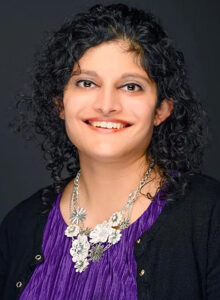As a mental health professional, I have had the incredible privilege of counseling individuals with Autism for over a decade. I have had the opportunity to witness and be a part of the beautiful journey that occurs when someone who received a diagnostic label of Autism Spectrum Disorder learns to become comfortable with every part of themselves and capitalize on their strengths to fulfill their purpose here on Earth. I’ve seen many realize that they think, learn, and communicate differently than others. They reckon with the idea that they may have to work harder than most to develop skills to fit into a world never created for them to achieve their goals.

Autism is often linked with mental health conditions like anxiety and depression. There has been a lot of research to support the correlation and comorbidity between these conditions. In my opinion, this is caused by the battles that come with Autism, like trying to fit in while feeling different from what society deems as normal. I believe the mental health struggles also come from the shame and stigma associated with Autism due to a lack of education and understanding of the topic among the general population. For instance, people diagnosed are often categorized as high- or low-functioning. Those with strong academic skills (ex., reading, writing, math, and memorization) are often labeled high functioning, while those with other strengths like strong conversational or adaptive/independent living skills (ex., cooking, cleaning, building, hands-on tasks) are labeled as low functioning. People with a diagnosis tend to work extremely hard to hide or mask any indication that they have Autism as well. It is extremely difficult to try to hide who you truly are. This difficulty is often compounded by challenges with regulating and expressing emotions in a socially acceptable way.
The role of a mental health professional is to work with individuals to understand what a diagnosis of Autism Spectrum Disorder means for them. A spectrum means that the experience will be different for everyone. This makes it critical for mental health professionals to listen and be open-minded to learn from their clients. For instance, seek their input about whether they prefer to be called a “person with Autism” or “Autistic person.” It is the role of a mental health professional to encourage them to seek hope and faith that they can fulfill their purpose here on Earth despite a diagnosis. The role of a mental health professional is to teach someone that a diagnosis is simply a tool rather than a definition of who someone is. Clinicians, counselors, and therapists are to teach people that it is okay to receive support, help, and accommodations to accomplish goals. Going into a vulnerable position and seeking these tools is a strength.
I had the opportunity to develop a research-based course for a post-secondary education program that teaches young neurodiverse students all of these concepts. Many bright, talented, and wonderful young people broke into tears when we started talking about their experiences. It was the first time they ever spoke about Autism or understood what it meant for them. For many years, many of them have been taught that Autism makes them inferior to others. They were taught that this prevented them from having the life they dreamed of. One person refused to continue with the class because of their experiences with this. As a neurodiverse person myself, I related to this tremendously. It was not until they were finally faced with a different notion of Autism and Neurodiversity that they began to identify and explore their strengths. It is not the role of mental health professionals to correct or cure Autism or to tell people what they are or are not capable of. Mental health support can help people embark on a journey of discovering one’s strengths and identifying the necessary tools to accomplish one’s goals. Mental health support can help people break free of the need to fit in and finally appreciate themselves for who they are created to be while developing the skills to navigate this world for what it is. I encourage all who Autism impacts to seek mental health support for this reason, particularly from someone who specializes in working with neurodiverse people. I plead for all of those in positions of power and influence to make counseling and therapy more accessible for all. For families of children with Autism, the school your student attends can assist with finding mental health support for them early on. Ralph Waldo Emerson wrote, “To be yourself in a world that is constantly trying to make you something else is the greatest accomplishment.” Mental health support can help those with Autism accomplish this while the world slowly shifts to a more positive view of the diversity of the mind. Mental health professionals can help people break free from the need to conform to the patterns of this world.
Priya Winston, PhD, LMSW, is Director of Curriculum and Clinical Supports at Transitions.
Additional Resources
Keating, C. T., Hickman, L., Geelhand, P., Takahashi, T., Leung, J., Schuster, B., Rybicki, A., Girolamo, T. M., Clin, E., Papastamou, F., Belenger, M., Eigsti, I.-M., Cook, J. L., Kosaka, H., Osu, R., Okamoto, Y., & Sowden, S. (n.d.). Global Perspectives on autism acceptance, camouflaging behaviours and mental health in autism spectrum disorder: A registered report protocol. PLOS ONE. https://journals.plos.org/plosone/article?id=10.1371%2Fjournal.pone.0261774
Rudy, L. J. (2023, October 18). Are high- and low-functioning autism meaningful descriptions? Verywell Health. https://www.verywellhealth.com/high-and-low-functioning-autism-260599#:~:text=Instead%20of%20using%20functioning%20labels,and%20need%20the%20most%20support.




